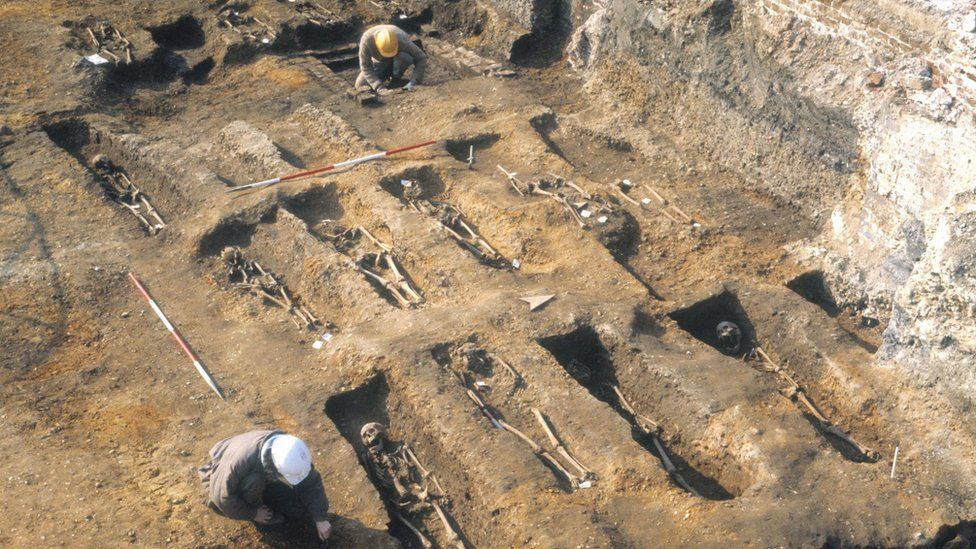ARTICLE AD BOX
 Image source, PA Media
Image source, PA Media
Scientists took small skeletal samples from a mass burial site
By Nathan Heath & PA Media
BBC News
Researchers have found 4,000 year-old plague DNA in Britain - the oldest evidence of the disease in the country.
Scientists identified three cases of Yersinia pestis, the bacteria causing the plague, in human remains - two in a mass burial in Somerset, and one in a ring cairn monument in Cumbria.
The team took small skeletal samples from 34 individuals looking for the presence of Yersinia pestis in teeth.
The dental pulp was examined as it traps the DNA of infectious diseases.
Francis Crick Institute scientists worked with the University of Oxford, the Levens Local History Group and the Wells and Mendip Museum to make the discovery.
Image source, Science Photo Library
Image caption,Plague was once the world's most feared disease, but can now be easily treated
Pooja Swali, first author and PhD student at the Crick, said: "The ability to detect ancient pathogens from degraded samples, from thousands of years ago, is incredible.
"These genomes can inform us of the spread and evolutionary changes of pathogens in the past, and hopefully help us understand which genes may be important in the spread of infectious diseases.
"We see that this Yersinia pestis lineage, including genomes from this study, loses genes over time, a pattern that has emerged with later epidemics caused by the same pathogen."
Image source, Science Photo Library
Image caption,In previous centuries plague outbreaks killed millions in Europe and Asia
The researchers also analysed the DNA and identified three cases of Yersinia pestis in two children, thought to be 10 to 12 years old when they died, and one woman aged between 35 and 45.
According to the findings, it is likely the three people lived at roughly the same time.
Researchers said this strain of the plague - the late Neolithic and Bronze Age lineage - was most likely brought into Central and Western Europe around 4800 BP by humans expanding into Eurasia.
Now this research suggests that it extended as far as Britain.
The findings were published in Nature Communications.
Follow BBC West on Facebook, Twitter and Instagram. Send your story ideas to: bristol@bbc.co.uk

 2 years ago
48
2 years ago
48








 English (US) ·
English (US) ·